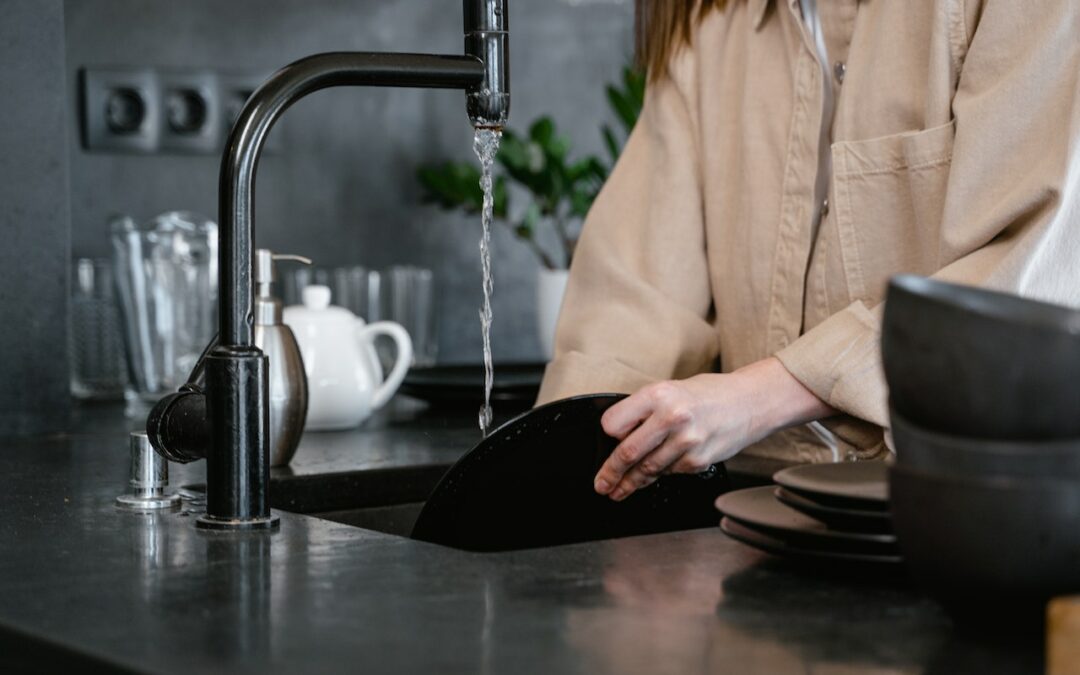As a trusted local plumbing business, we understand that plumbing issues can cause significant stress and inconvenience for homeowners. To help you navigate common plumbing concerns, we’ve compiled a list of the top five frequently asked questions we receive from our customers. We hope that by providing detailed responses, we can empower you to make informed decisions and maintain a well-functioning plumbing system in your home.
How can I prevent clogged drains? Clogged drains are a common plumbing issue that can disrupt daily activities. Here are some preventive measures you can take:
1) Avoid pouring grease, oil, or food scraps down the drain.
2) Use drain strainers to catch hair, soap residue, and other debris.
3) Regularly flush drains with hot water and a mixture of baking soda and vinegar.
4) Be mindful of what you flush down the toilet, as only human waste and toilet paper should be disposed of in this manner. Wipes, feminine hygiene products, and paper towels, amongst other things, should be thrown away rather than flushed.
What should I do in the event of a leaky faucet? A leaky faucet not only wastes water but can also be annoying. Follow these steps to address the issue:
1) Turn off the water supply to the faucet.
2) Close the drain to prevent small parts from falling down.
3) Identify the type of faucet (compression, cartridge, ball, or ceramic disc).
4) Depending on the type, replace the washer, O-ring, cartridge, or valve seat to fix the leak. If you’re unsure, contact your local professional plumber.
How do I deal with a running toilet? A running toilet can waste significant water and increase your utility bills. Try the following troubleshooting steps before considering a toilet replacement:
1) Lift the toilet tank lid and check if the flapper valve properly seals the flush valve. Adjust or replace it if necessary.
2) Inspect the float and ensure it is properly adjusted to control the water level in the tank.
3) Check the fill valve for any leaks or malfunctions. Replace it if needed.
4) If these steps don’t resolve the issue, consult a professional plumber to identify and fix the underlying problem.
What can I do to prevent frozen pipes in winter? Frozen pipes pose a serious risk of bursting and causing water damage. Follow these precautions to prevent frozen pipes and winterize your home during the chillier months:
1) Insulate exposed pipes in unheated areas, such as basements, attics, and crawl spaces.
2) Open cabinet doors to allow warm air circulation around pipes under sinks.
3) Maintain a consistent indoor temperature during extremely cold weather.
4) In severely cold conditions, let faucets drip slightly to relieve pressure within the pipes.
How often should I schedule professional plumbing maintenance?
Regular plumbing maintenance is essential for preventing major issues and extending the lifespan of your plumbing system. We recommend scheduling professional plumbing maintenance at least once a year. During this visit, a qualified plumber can inspect your pipes, check for leaks, ensure proper water pressure, and address any potential concerns before they turn into costly repairs.
When in Doubt, Trust the Plumbing Experts
We hope to have provided valuable information and guidance for common plumbing concerns by addressing these top five frequently asked questions. Remember, while homeowners can handle some minor plumbing tasks, it’s important to recognize when to seek professional help to avoid exacerbating the problem. As your trusted local plumbing experts, we are always here to assist you with any plumbing issues you may encounter. Don’t hesitate to reach out to our team for reliable service and peace of mind.



Recent Comments